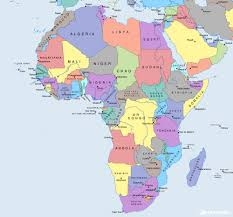The African Commission on Human and Peoples’ Rights has expressed deep concern about the increasing rates of corruption in Africa within the context of fighting against COVID-19 pandemic
The commission through its Chairperson, Commissioner Solomon Ayele Dersso, and the African Union Advisory Board on Corruption (the Advisory Board), through its Chairperson Honourable Begoto Miarom, explained that they have received reports of “misuse of the emergency relief funds received from multilateral institutions for the benefit of corrupt officials.
“The use of companies in which state officials have direct interest for delivery of emergency services and medical goods including Personal Protective Equipment (PPE) for frontline health workers; ventilators, beds and testing kits for hospitals; and the provision of sanitizers and face masks for the general public.”
The Institutions also raised concerns about reports of the supply of defective emergency medical supplies at a price much higher than their market value, price gouging, inflation and the creation of artificial shortages of essential goods, including medical supplies in the context of the pandemic.
The institutions thereafter called on “States to ensure the integrity of public procurement processes during the emergency period by putting in place minimum standards in line with best practices, such as ensuring open and competitive bidding processes and limiting the use of non-competitive processes; establishing fair and objective selection criteria; and ensuring periodic and independent auditing of procurement processes.”
The institutions also urged government at all levels to make information about the procurement available to members of the public.
“States to avail to the public, on a regular basis, all information on the utilization of emergency relief funds and the standards used in procurement of goods and services, the monitoring of such processes and the measures taken in response to reports of corruption in the context of the COVID-19 pandemic, through press briefings and open and public electronic systems;
“States in which the perpetration of corruption has been reported must swiftly and thoroughly investigate all credible allegations of corruption and combat impunity by holding all perpetrators accountable, whether in the public or private sector.”
It also called on African states “to respect and put in place measures to ensure the protection of journalists, the media, human rights defenders and anti-corruption campaigners as well as whistle blowers, from any form of reprisal or retaliation.
“States must ensure that the institutions for monitoring, investigating and instituting sanctions for all corruption and other illicit practices are given full cooperation and support to carry out their functions as essential services in the context of such emergencies as the COVID1-9 pandemic.

